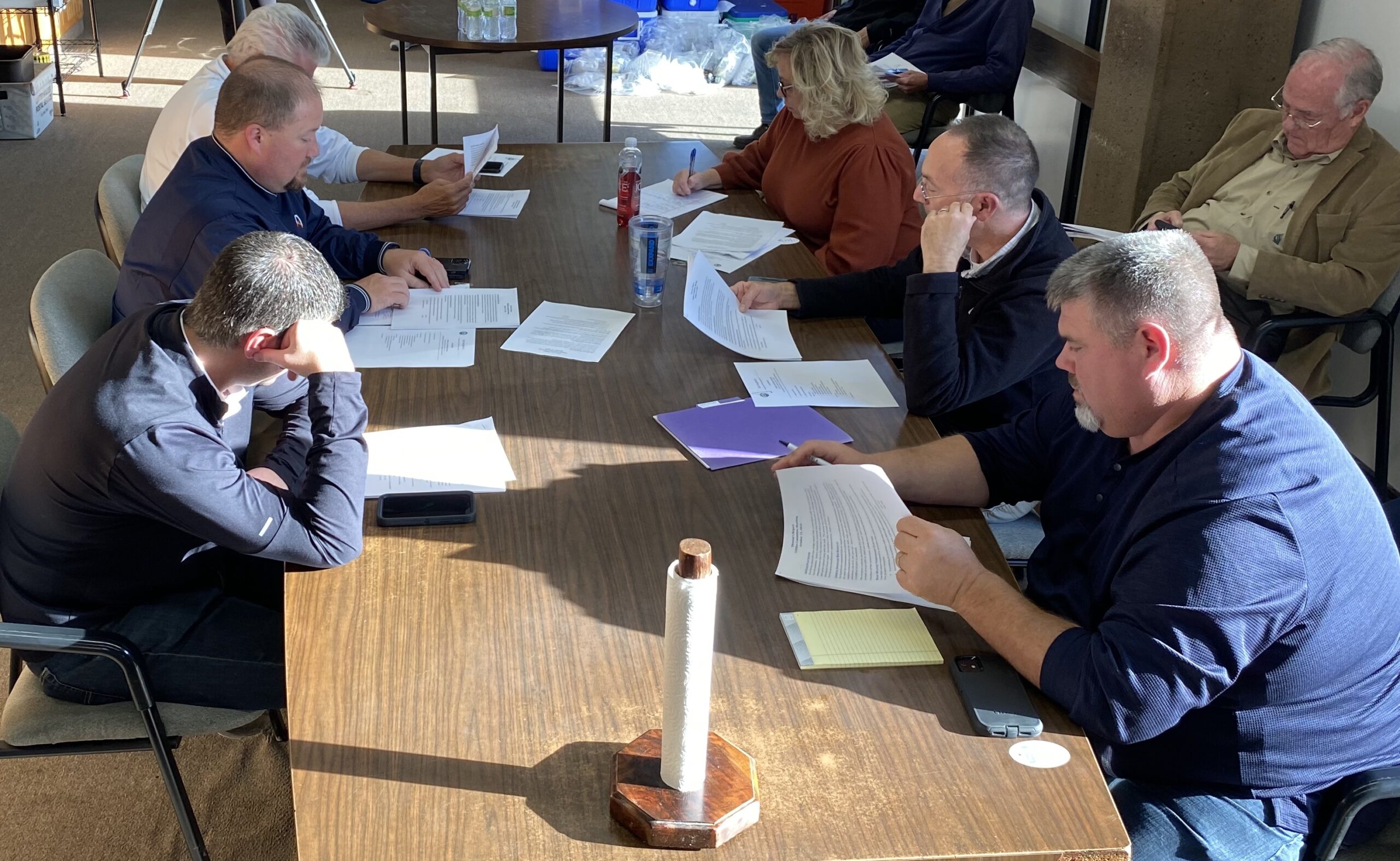Utilities committee agrees hike for water, sewer rate is needed, wants City Council to decide how the increase will be determined

QUINCY — The Utilities Committee agreed Thursday afternoon during its meeting at the Waste Water Treatment Plant, 700 West Lock & Dam Road, that a hike in city of Quincy’s water and sewer rates is necessary to cover recent overage expenses.
However, the committee thought the Quincy City Council should determine how that rate hike should be shared among families, commercial businesses and industries.
Jeff Conte, director of public works, explained to the five-person committee — aldermen Dave Bauer, D-2, Parker Freiburg, R-3, and John Mast, R-5, plus Jacob Venvertloh and Dan Cook — why the city needs to implement the rate hike, then offered three alternatives as to how customer monthly bills would be affected starting Nov. 1
Conte said a rate increase implemented in 2018 cost the minimum user an extra $10.42 on their monthly bill. The rate increase was believed to be enough to cover operations, maintenance, capital investments and debt services through April 2024. The rate increase created a net income of $4.68 million in fiscal year 2019, $5.69 million in fiscal year 2020, $3.19 million in fiscal year 2021 and $3.29 in fiscal year 2022.
“We thought we were safe,” Conte said. “Everything was going great until this fiscal year.”
Five months into fiscal year 2023, Conte said three primary “unavoidable” expenses have contributed heavily to the erosion of nearly $1 million in operating profits. Expenses for energy (used to pump water) have risen $395,366, operating supplies (chemicals used to treat water) have risen $347,872 and sludge disposal has risen $186,877.
The net operating income has dropped $973,828 since May 2022.
The department of utilities and engineering is projecting an overall increase in operating expenses in 2023 of more than $3 million — nearly 30 percent more.
Compared to the present rate structure, the proposed rate adjustments will produce approximately $1.5 million in additional revenue in fiscal year 2023 and $3.2 million for fiscal year 2024.
Conte provided figures that show 92.2 percent of the water and sewer customers are residential, but they only consume 41.7 percent of the water and provide 53.2 percent of the revenue. Less than 8 percent of Quincy water customers consume more than 58 percent of the water.
Alternatives for monthly utility bills
| Customer | Monthly Consumption | Present Bill | Alternative No. 1 | Alternative No. 2 | Alternative No. 3 |
|---|---|---|---|---|---|
| Residential, minimum use | 100 cubic feet | $15.79 | $24.79 | $21.78 | $19.78 |
| Average family | 600 cubic feet | $40.49 | $49.49 | $50.38 | $50.73 |
| Commercial (1-inch meter) | 3,000 cubic feet | $171.62 | $191.18 | $206.32 | $215.05 |
| Industrial (6-inch meter) | 730,000 cubic feet | $31.889.78 | $32,306.90 | $35,094.92 | $37,277.97 |
Conte and Jeff Mays, director of administrative services, wanted to the committee to select one of the three alternatives that would be sent to aldermen to consider next week. Conte recommended for the committee to agree to his first alternative, which would implement a 56.9 percent increase for a minimal residential user with a five-eighths-inch regular meter from $15.79 to $24.79. Larger meters for commercial and industrial use would see a proportionately higher surcharge.
However, Cook liked better the second alternative, which would implement a 37.9 percent increase for a minimal residential user from $15.79 to $21.78.
“To me, (the first alternative) is punitive to single-family households. That’s all I’m trying to eliminate,” he said. “To modify the second alternative and lower it a little bit, I guess that’s where my feelings are.”
The committee agreed a rate hike is necessary, but it eventually decided to pass on selecting a rate, giving that responsibility to the City Council.
“A decision like this should be made by the whole city council, not just by the three members here,” Freiburg said. “I want every ward to have a chance to say what is best for their residents.”
Each of the three alternatives would keep the average monthly usage charge at or below several similarly sized cities like Jacksonville, Rock Island, Pekin, Peoria, Jerseyville, Alton, Lincoln in Illinois, Burlington and Keokuk in Iowa and Hannibal in Missouri.
“We’re still on the extreme low end for the residential minimum usage,” Freiburg said. “When everybody else is raising prices, unfortunately, it comes down to basic economics.”
Conte said he wasn’t surprised the committee passed on making a recommendation to the City Council.
“I actually expected it,” he said. “The only reason I wanted the (committee’s) recommendation was simply just for the paperwork part for getting the ordinance introduced. I realized it was going to be changed on the floor most likely.”
Miss Clipping Out Stories to Save for Later?
Click the Purchase Story button below to order a print of this story. We will print it for you on matte photo paper to keep forever.

